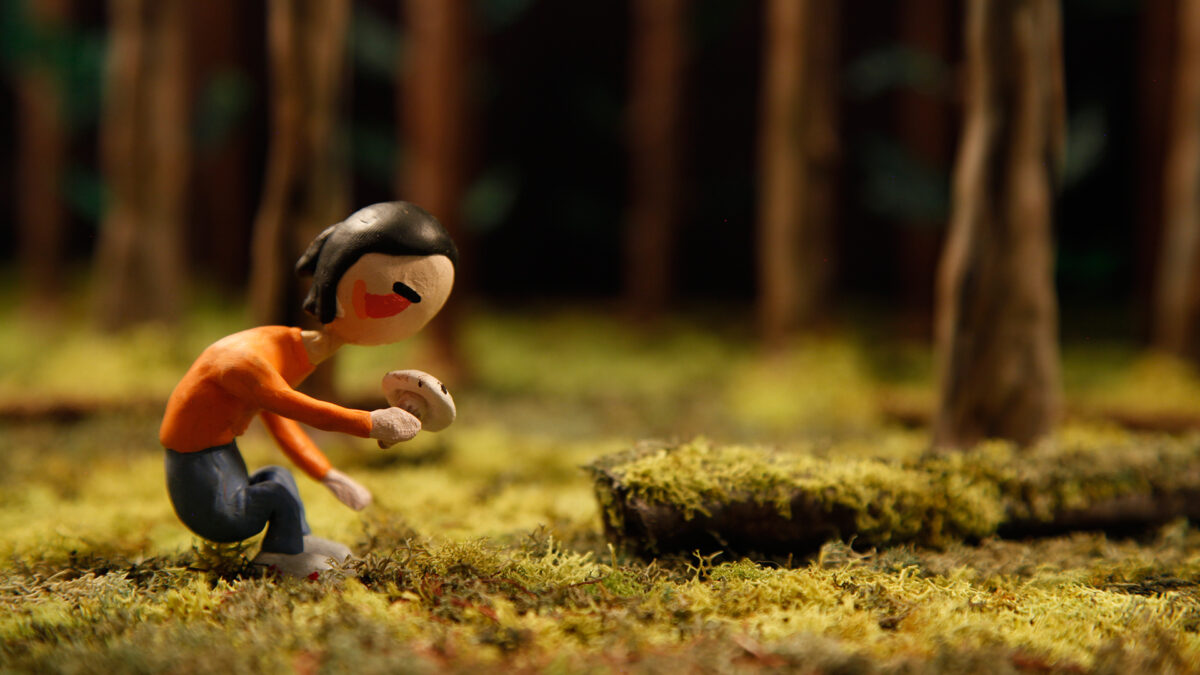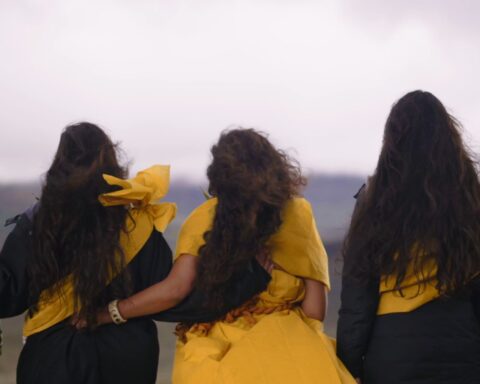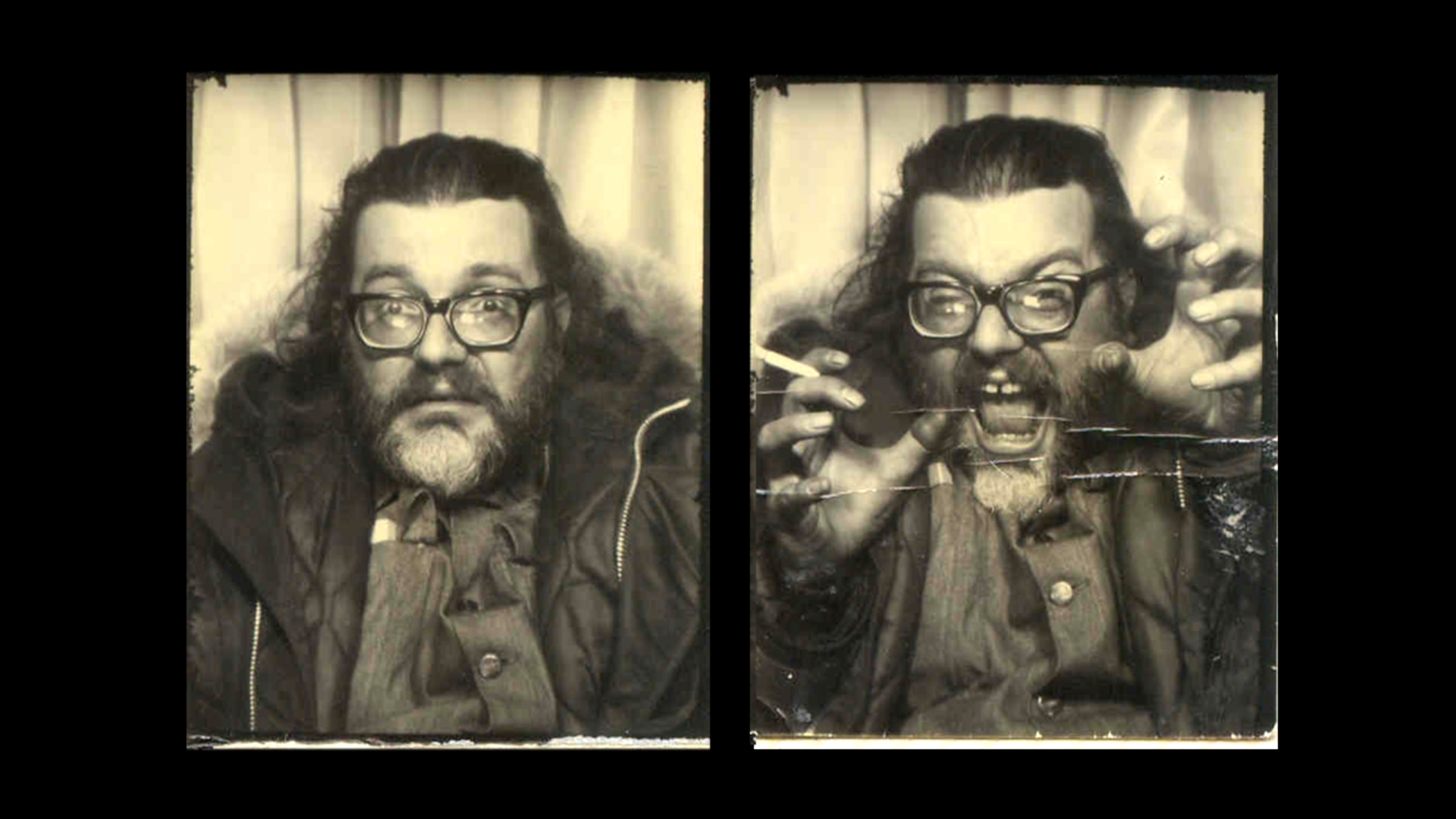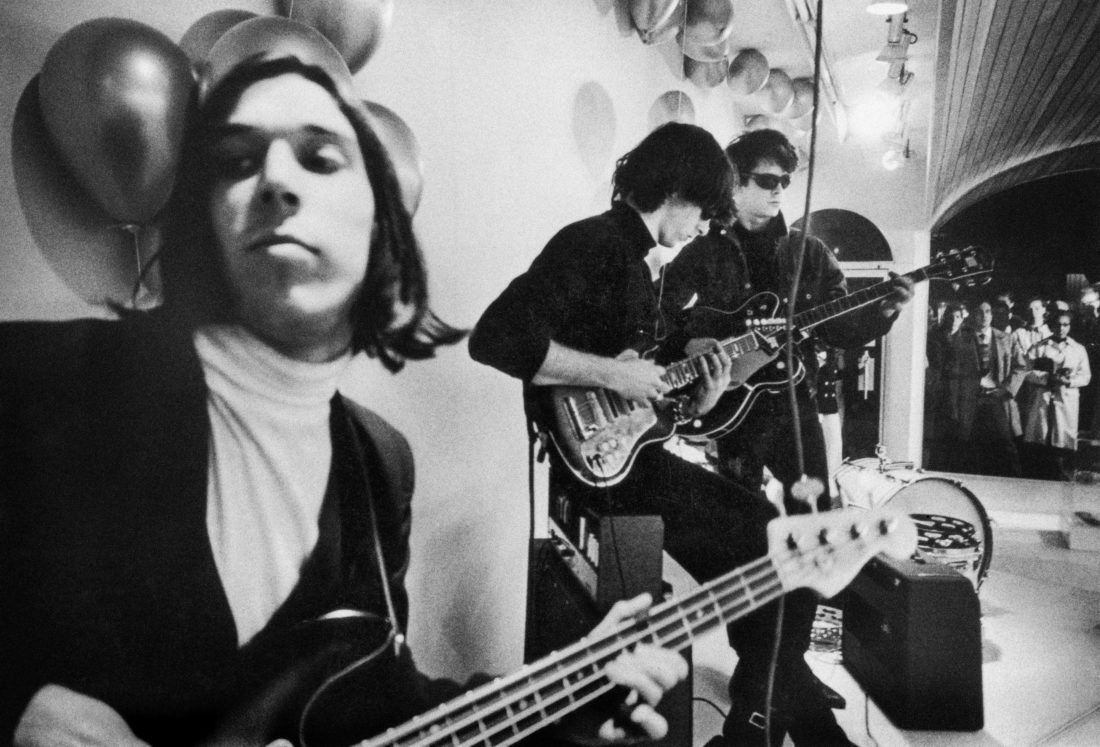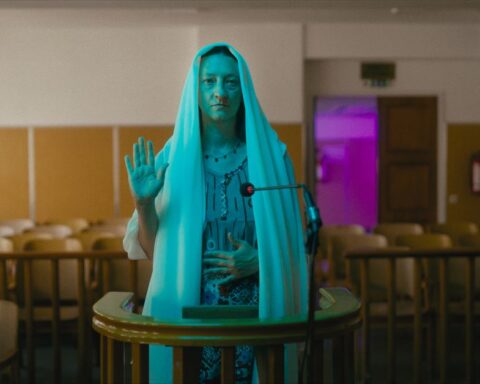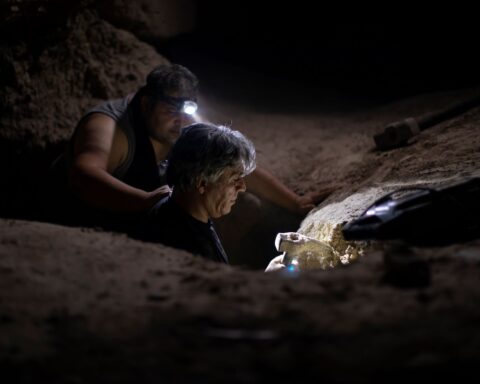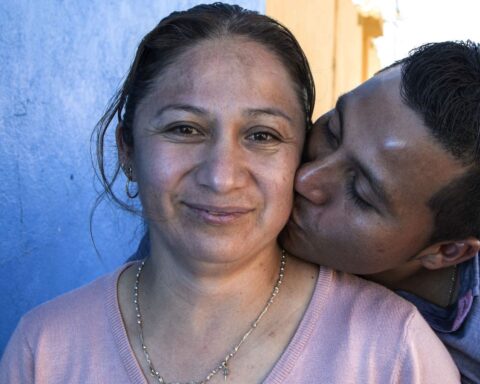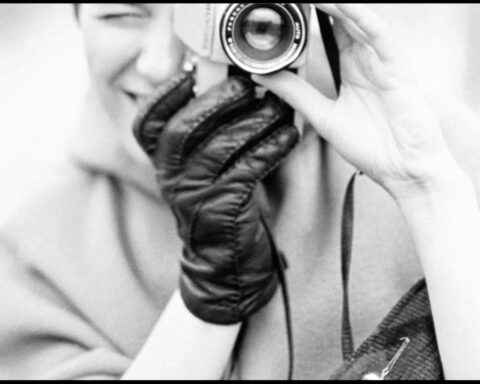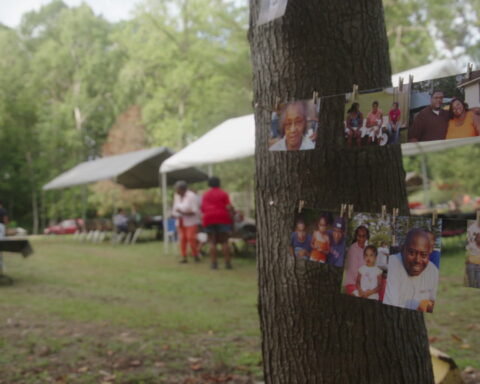The Mirror Mountain Film Festival, a new event based in Ottawa, showcases Indie, alternative and underground cinema, including some great short documentaries. The selected short docs explore such themes as family, belonging, resilience, and migration. Anne Koizumi touches on all of these subjects in her short film In the Shadow of the Pines (Canada, 2020). Using a blend of animation and archival footage, Koizumi tells the story of the relationship she had with her father, a Japanese immigrant. He worked as a janitor in her elementary school, which filled her with shame. Animated scenes recreate the humiliation Koizumi felt when encountering her father in front of her classmates. Her sense of shame formed the person she grew to be and the way she presented herself to the outside world, while also fuelling a desire for her father to be someone else. Though empathizing with her father’s own childhood memories, In the Shadow of the Pines redefines memories of Koizumi’s father that were once coloured by shame and embarrassment, to see them for the acts of love they really were.
Abdoulaye Sibide made the fraught journey from his home in Libya to Sicily to pursue his dream of becoming a fashion model. While following Abdoulaye’s journey in Tailor Made (Canada/France/Italy, 2021), filmmaker Alexander Griffith interviews various Sicilian residents who express how they feel about newcomers appearing on their shores. Many interviewees convey sympathy for the African migrants, as they know of the hardships they endured to get to Italy; however, they are also aware that more challenges will come in Sicily as the region struggles economically. Older Sicilians are even empathetic to immigrants, as they know tales of relatives who emigrated to North America where they were met with discrimination and disdain. It is some of the younger Sicilians who have a harder time accepting the newcomers, as they feel there are job options for them in Sicily, and therefore, no room for anyone else. Yet, there is always some opportunity to be found and Abdoulaye grasps at his. He gains an internship with a men’s boutique whose owners mentor him in the men’s fashion industry. Stylish, handsome, charismatic and eager to learn, he is a welcome addition to their business. Though we know the socio-economic conditions Abdoulaye faces are significant, his positivity and enthusiasm can’t help but make you hopeful for his future.
Already making a name for themselves in the fashion industry is Tyler Alan Jacobs, a two-spirit Indigenous designer from the Squamish Nation. Jacobs has appeared in Flare Magazine and opened an important Indigenous fashion show several years ago. As writer and director of the short doc Walk With My Spirit (Canada, 2018), we watch the designer as he creates an elaborate and intricate Indigenous dress. Jacobs started making regalias at 14 and later got into beadwork. Traditional garments of their culture inspire the look of the clothing and Jacobs uses ancient cultural practices and rituals in the fabrication of the garments. When Jacobs dances in their own design, a traditional women’s dress, they embrace and make known the entirety of their being as a two-spirit person.
“I was seven when we went to Expo. I should remember it. This landscape, so vivid and strange, but I remember nothing. It’s as if I was never there. Maybe memory is like a dream, half imagined and half real. Maybe this film is my memory.” A woman’s voice recites this thought repeatedly throughout all nine-minutes of Expo Film (this film is my memory) (Canada, 2020). The experimental film consists of home movie footage of Expo ’67 as the voice slowly recedes and decays in the background. In crafting the film, Penny McCann instills dream-like memories in the viewer that do not belong to us.
Directed by Nicolas Jimy Awashish, Kanockatonanok (Crossing Paths), (Canada, 2018) is made entirely with photographs. A young man goes on a night stroll through the Atikamekw village of Opitciwan. He takes us through the residential area of his village, into the dense forest through to a clearing where he meditates on the vast night sky, saying, “I go beyond myself and I come back.” Though he has never seen the ocean, it doesn’t matter, he tells us, because he feels as if the whole world is accessible to him when immersed in the nature and wonder of his ancestral land.
China Doll (Canada, 2021) tells the story of an Ottawa native who has also embraced different facets of themselves through the arts and community. The short film is named for China Doll, a drag performer, restaurant owner and Ottawa icon, who also goes by the name Ed Kwan. When Kwan’s parents immigrated to Ottawa from China they started a family business growing bean sprouts in their basement, which they would supply to Chinese restaurants across the city. In the 1970’s, they opened The Shanghai Restaurant, and it quickly became a neighbourhood institution. As the Kwan family became pillars in their community, The Shanghai Restaurant has become a community center, and a nightclub as well as a place to eat. Ed’s involvement in his community, delivering food to those in need and supporting local artists, has strengthened his performance as a drag queen. Fabulously dressed in oversized colourful frocks, huge glasses, golden lips and a wig of flames, China Doll has a talent for forging deep connections with his audience while keeping the party going.
In 2005, when Taylor Crowspreadshiswings was a little girl, she received the horrendous news that a drunk driver had killed her mother. Written and directed by Crowspreadshiswings, Sokinaa’ Passkaan Aassisstoi (Healing Bells) (Canada, 2020) tells of how she overcame this tragedy and found resilience through dance. As a young girl, Taylor loved to Powwow dance, but after losing her mother, she felt alienated and disconnected from her heritage and its traditions. Through having a child, she learned to be a mother to both her daughter and herself, reclaiming her culture and heritage in a healing journey.
The music that opens Porté(e) (Canada, 2021) by Nicole Blundell is somewhat jarring, but its footage and subject, Angela Jackson, are charming. As a child, Angela was often ill so physical activity, movement, and breath became very important to her sense of well-being. She fell in love with ballet, but as her body began to change from a girl’s to a woman’s, she no longer felt comfortable in the ballet world. Eventually, she came to modern dance, studying at the l’École de danse contemporaine de Montreal. Soon after, she moved to Toronto where she experimented further by blending dance with theatre. Dressed in a long poufy skirt and clown makeup, she performs as a young Angela speaking to an unseen audience about developing her character, the Cyber Clown. Giggling through her talk, the Angela is reminiscent of Greta Gerwig in her role as a contemporary dancer in the acclaimed Indie film Frances Ha. Now 50-years-old, the dancer speaks to the evolution of her work and practice as it has developed in tandem with changes to her physical body through puberty, two pregnancies and menopause.
How do you create a sense of time and purpose when confined to a single space? The pandemic has made this a universally relevant question. In collaboration with the National Film Board (NFB), filmmaker Conor McNally asks this of his brother, Riley, who lived under house arrest for a prolonged period of time. The film follows Riley doing various solitary activities, shooting hoops, exercising, cutting down trees. It’s all shot in black and white giving a sense of the sameness of his day-to-day life. We are never told what events lead to Riley’s arrest; instead, the film focuses on the trauma of the arrest itself and the sentence that followed. “Being confined is scary,” Riley says. “But being confined while not completely in your mental faculties is horrifying.” He lost sense of time and purpose until he was permitted to work at a farm while serving his sentence, which helped him recover. The manual labour required working on a farm, like harvesting firewood, served as a form of mindfulness due to the focus and presence it requires. Just as Nicolas Jimy Awashish describes in Kanockatonanok, nature allows you to escape yourself and return in a way that grounds you, especially when external circumstances limit access to the surrounding world.
Mirror Mountain Film Festival streams July 24-25.




